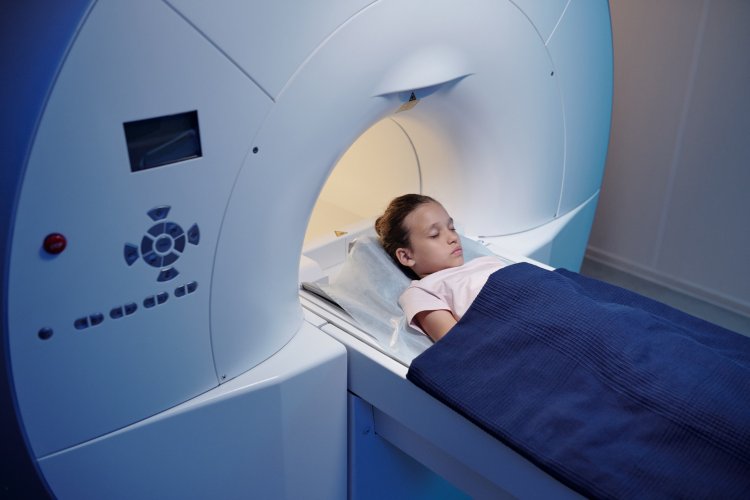From Diagnosis to Cure: The Role of Radiation Therapy in Cancer Treatment
Radiation therapy, also known as radiotherapy, is a vital tool in the fight against cancer. It uses high-energy radiation to shrink tumors and kill cancer cells, and can be employed alone or in conjunction with other treatments such as surgery, chemotherapy, or immunotherapy. This article delves deeper into what radiation therapy entails, how it is performed, its benefits, and potential side effects.

What is Radiation Therapy?
Radiation therapy is a type of cancer treatment that uses ionizing radiation to destroy cancer cells by damaging their DNA, thus preventing them from growing and dividing. While the radiation can also affect healthy cells, these cells are generally more resilient and can repair the damage more effectively than cancer cells.
There are two main categories of radiation therapy:
External Beam Radiation Therapy (EBRT)
Procedure:
- Simulation and Planning: Before treatment begins, patients undergo a simulation process to map out the exact area to be treated. This involves imaging techniques such as CT scans, MRIs, or PET scans to create a precise treatment plan.
- Positioning and Marking: Patients are carefully positioned on the treatment table, and skin markings or tattoos may be applied to ensure consistent targeting.
- Treatment Delivery: During each session, a machine called a linear accelerator delivers high-energy X-rays or protons to the tumor site. The patient must remain still, but the procedure itself is painless.
Technology:
- 3D Conformal Radiation Therapy (3D-CRT): Uses three-dimensional imaging to target the tumor more accurately.
- Intensity-Modulated Radiation Therapy (IMRT): Adjusts the intensity of the radiation beams and shapes them to the contour of the tumor.
- Stereotactic Radiosurgery (SRS) and Stereotactic Body Radiotherapy (SBRT): Delivers very high doses of radiation to small, well-defined tumors in fewer sessions.
Sessions:
- Treatment typically occurs five days a week for several weeks. Each session lasts only a few minutes, but setup time can take longer.
Internal Radiation Therapy (Brachytherapy)
Procedure:
- Placement: Radioactive sources are placed directly inside or near the tumor using needles, catheters, or specialized applicators.
- Types of Placement: Can be temporary or permanent, depending on the type and stage of cancer.
- Temporary Brachytherapy: Involves placing the radioactive material for a specified duration (minutes to days) and then removing it.
- Permanent Brachytherapy: Also known as seed implantation, involves placing small radioactive seeds that remain in the body and gradually lose their radioactivity over time.
Applications:
- Commonly used for cancers of the prostate, cervix, breast, and other localized tumors.
Benefits of Radiation Therapy
Radiation therapy offers several significant advantages:
- Precision: Advanced imaging and planning techniques allow for precise targeting of cancer cells, minimizing damage to surrounding healthy tissues.
- Non-Invasiveness: External beam radiation therapy is non-invasive, and even internal radiation therapy is minimally invasive compared to surgical options.
- Versatility: Effective for treating a wide range of cancers and can be combined with other treatment modalities for a comprehensive approach.
- Symptom Relief: In advanced cancer cases, radiation therapy can help alleviate symptoms such as pain, bleeding, and obstruction by shrinking tumors.
Side Effects of Radiation Therapy
While radiation therapy is effective, it can cause side effects, which vary based on the treatment area, dose, and individual patient factors. Common side effects include:
General Side Effects:
- Skin Changes: Redness, irritation, peeling, and darkening of the skin in the treated area.
- Fatigue: A common side effect due to the body's response to radiation and the effort of repairing damaged cells.
- Hair Loss: Hair loss in the treated area, which is usually temporary.
Specific Area Side Effects:
- Head and Neck: Dry mouth, difficulty swallowing, mouth sores, and changes in taste.
- Chest: Cough, shortness of breath, esophagitis (inflammation of the esophagus).
- Abdomen: Nausea, vomiting, diarrhea, and potential changes in bowel habits.
- Pelvis: Bladder irritation, diarrhea, sexual dysfunction, and fertility issues.
Long-Term Side Effects:
- Fibrosis: Thickening and scarring of tissues, which can lead to long-term discomfort or dysfunction.
- Secondary Cancers: A small risk of developing secondary cancers years after treatment due to radiation exposure.
- Lymphedema: Swelling due to damage to the lymphatic system, often occurring after treatment of cancers in the breast, pelvis, or limbs.
Managing Side Effects
To manage the side effects of radiation therapy, patients can take several steps:
- Skin Care: Use gentle, non-irritating skin products and avoid sun exposure on the treated area.
- Nutrition: Maintain a balanced diet and stay hydrated to support overall health and recovery.
- Rest: Get plenty of rest to combat fatigue and allow the body to heal.
- Medical Support: Work closely with the healthcare team to manage symptoms and adjust treatment plans as needed.
In conclusion, radiation therapy is a cornerstone in the treatment of many types of cancer, offering a precise and effective means of targeting and destroying cancer cells. While it can cause side effects, advancements in technology and techniques have made it increasingly precise, minimizing damage to healthy tissues. Understanding the procedure, benefits, and potential side effects can help patients make informed decisions about their treatment options.
Disclaimer: The information provided in this article is for educational purposes only and should not be considered medical advice. If you have any health concerns or are experiencing symptoms, it is important to consult with a healthcare professional, such as a doctor or clinic, for proper diagnosis and treatment. Always seek the advice of your doctor or other qualified health provider with any questions you may have regarding a medical condition. Do not disregard professional medical advice or delay in seeking it because of something you have read in this article.
Hashtags: #RadiationTherapy #CancerTreatment #Health #MedicalInfo #CancerCare #Brachytherapy #EBRT #RadiationSideEffects #Oncology #PatientCare
What's Your Reaction?





















